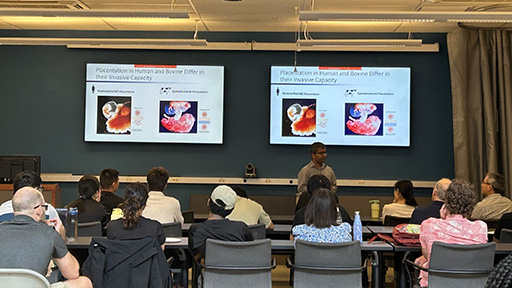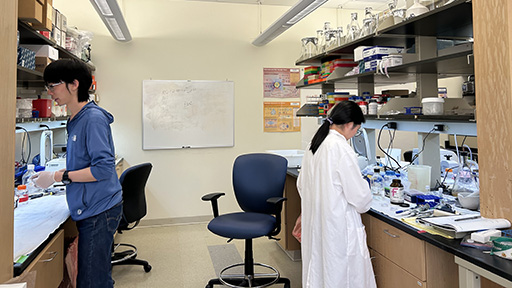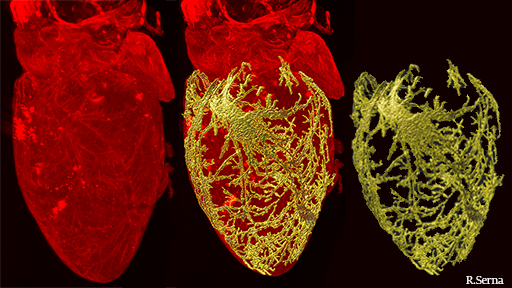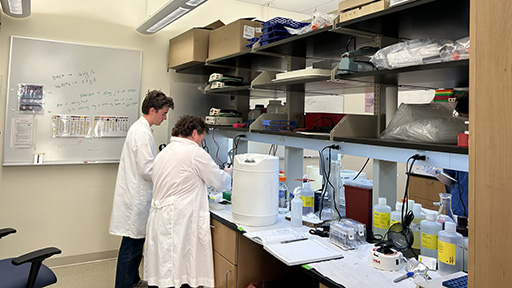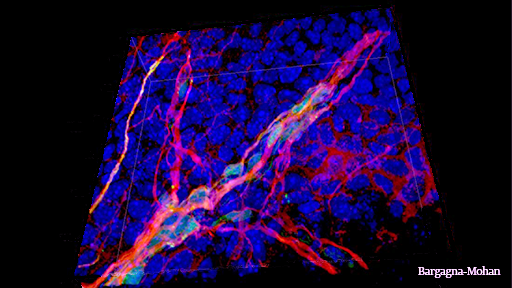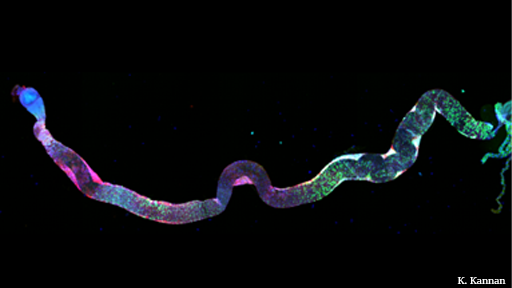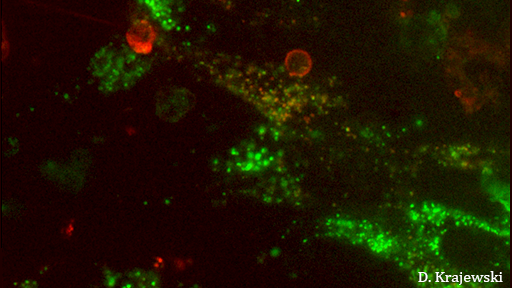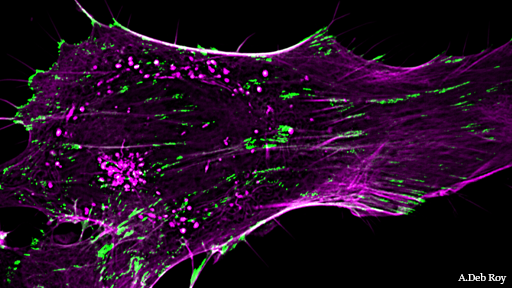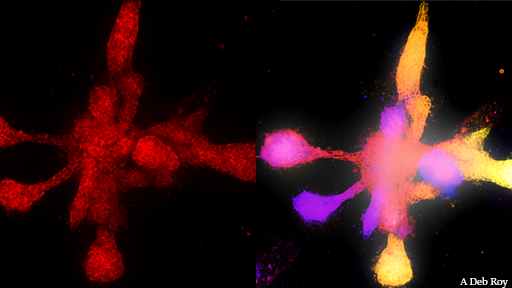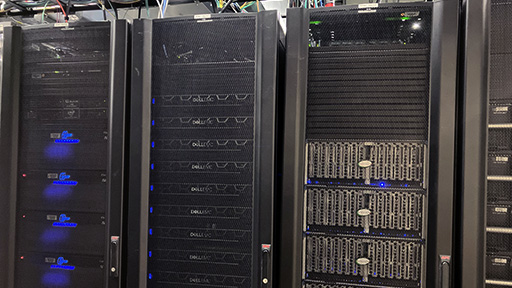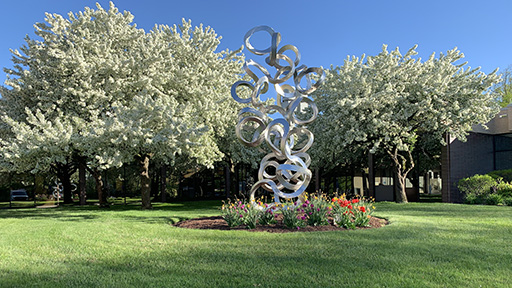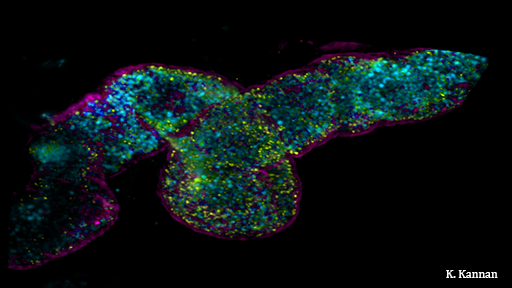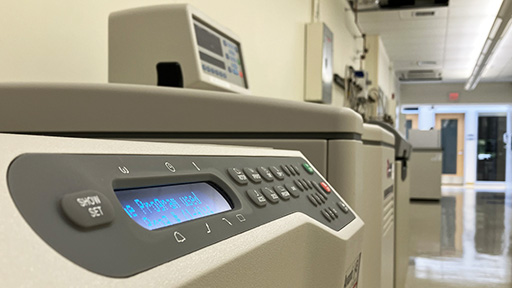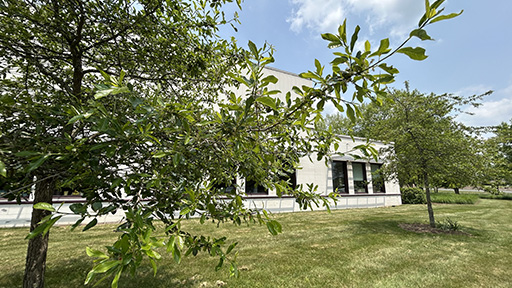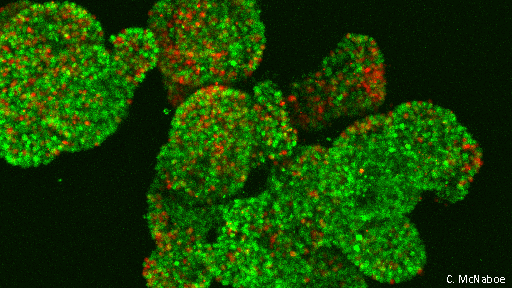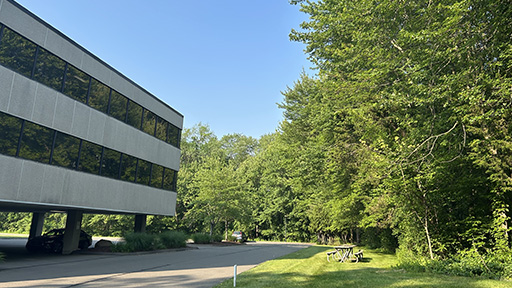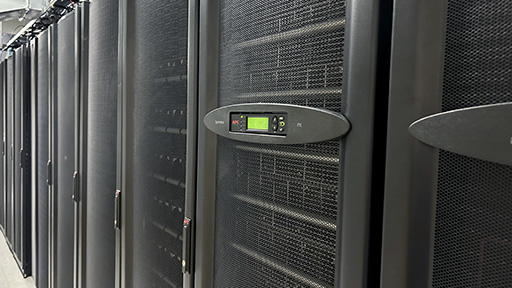Systems Biology at UConn Health
Our Mission
We develop computational and experimental approaches to tackle exciting questions in biology and medicine, bringing a systems biology approach to biomedical research. Quantitative experimental methods aim to measure the dynamic behavior of molecules in cells and tissues. We integrate these experimental data within computational models to produce quantitative, comprehensive, and mechanistic models of cellular and molecular dynamics.
The Center for Cell Analysis and Modeling (CCAM) hosts a confluence of expertise in cell biology, biochemistry, genomics, physics, chemistry, mathematics and computer science. We foster a biomedical research environment that values interdisciplinary collaborations. Our Ph.D. program in Systems Biology (opens in a new tab) provides unique graduate training in systems and computational biology. We also provide research experiences for undergraduates.
CCAM is home to several computational resources including Virtual Cell (opens in a new tab) and COPASI (opens in a new tab) for modeling and simulation of cellular mechanistic models, maintained under the NIH-funded National Resource for Mechanistic Modeling of Cellular Systems, Vivarium for multiscale simulation and whole-cell models, and many other experimental tools for imaging and molecular genetics. The center also hosts state-of-the-art high-performance computing (opens in a new tab) and microscopy (opens in a new tab) facilities.
The center’s values extend beyond rigorous and open science. Our research has benefited greatly from inclusive excellence and the diversity of ideas and backgrounds of all our researchers over the years. CCAM continuously strives to improve the environment in which we perform research and pursue education.
CCAM is committed to fostering an inclusive and tolerant research environment. We support students, faculty, and staff of all races, religions, ethnicities, differing physical abilities, sexual orientations, and gender identities. UConn maintains a number of resources to promote inclusivity and to report complaints:
Office of Institutional Equity
Ombuds Office
Dean of Students Office Bias Reporting
Office for Diversity and Inclusion
School of Medicine Office of Multicultural and Community Affairs
Upcoming Events
-
Feb
20
CAM Presentation: Rudradeep Mukherjee 12:00pm
CAM Presentation: Rudradeep Mukherjee
Friday, February 20th, 2026
12:00 PM
CGSB, 400 Farmington Ave.
Speaker: Rudradeep Mukherjee
Title: TBD
Via Webex: https://uconnhealth.webex.com/uconnhealth/j.php?MTID=mdacf393cf6a2ee5314a3b76525ea5e57
Contact Information:
More
News
- Dr. Abhijit Deb Roy was selected for the Interstellar InitiativePosted on September 23, 2025
- Congratulations, Dr. Stanislauskas!Posted on July 29, 2025
- Advancing Space Biotechnology Through Whole-Cell Models: AFOSR SymposiumPosted on March 18, 2025
- The 26th Annual CompCellBio workshopPosted on February 28, 2025
